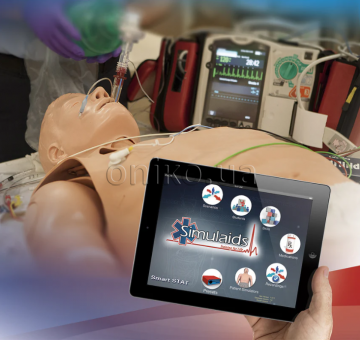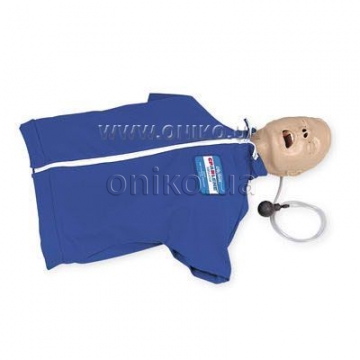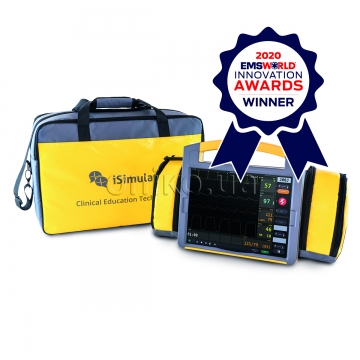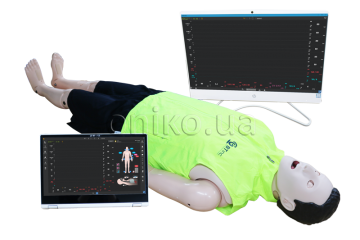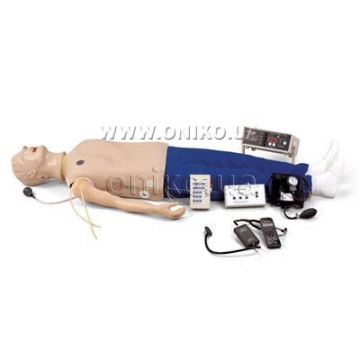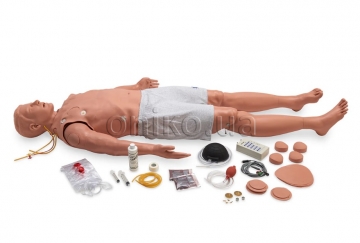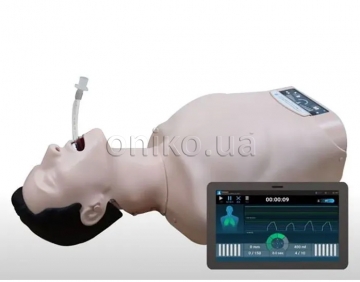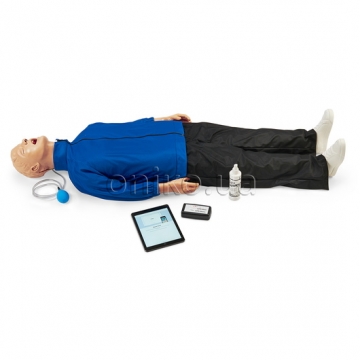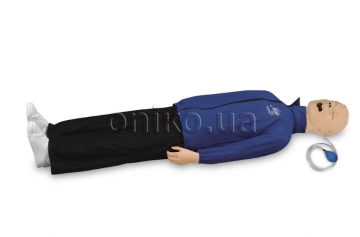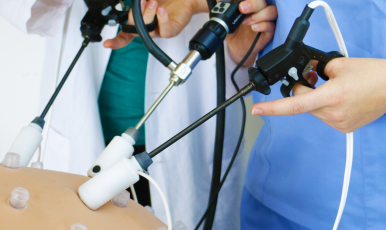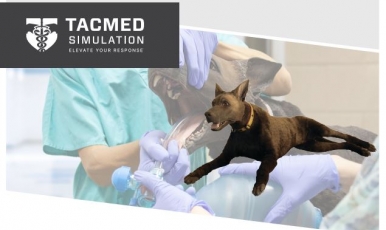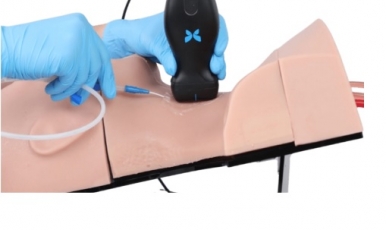Základní figurína Smart Stat se zpětnou vazbou
SMART STAT BASIC offers wireless learning options for practicing medical skills at various levels, including basic emergency care, nursing skills, and skilled cardiac and other care.
You can choose a simulation training program from the Simulaids library or create your own to support specific target training. The simulator is easy to assemble and can run without battery power to give you more training options in the field. Training cables are available to connect to your monitor/defibrillator.
Features:
- On-board air compressor supports 12 pulse points synchronized with the heart rhythm and edema control of the tongue and larynx
- Both cardiac and lung sounds
- Two points thoracic decompression and two sites for chest drains
- Monitor blood pressure
- Spontaneous breathing with full airway management including cricothyrotomy and proper intubation placement
- Manage cardiac crisis with EKG and cardioversion
- Chest compressions
- IV access
- Drug therapy
Advanced Airway Management
- STAT Deluxe Airway Management Head
- Tongue edema
- Laryngospasm
- Cricothyrotomy
- Breakout teeth
- Designed for LT, ET, LMA, and Combitube
ECG
- 4-lead recognition of 17 rhythms
- Defibrillation and cardio conversion
- Variable rates
- Pacing
Emergent Heart Sounds
- Heart and lung sounds: 6 anterior and 4 posterior lung sound speakers and 4 heart sound speakers allowing for sounds to be heard in appropriate places. Stridor is only heard in the upper lung speakers, wheezes bases is only heard in the four lower lung speakers
BP Arm
- Independently vary systolic and diastolic pressures
- Korotkoff sound changes
- Vary the amplitude of the sound
IV Arm
- Full venous access from dorsal hand to upper arm
- Infuse, withdraw, titrate drug therapy, sharps control, securing, and IM injections
Pulse Points
- 12 locations in pairs: carotid, femoral, popliteal,
- pedal (dorsal arch), radial, brachial (IV armantecubital, BP arm biceps pressure point)
- Distal pulses drop off under 70 mm Hg systolic
- Vary according to ECG rhythm
Bilateral Chest Decompression
- Right- or left-sided, partial or complete pneumothorax
- Audible air discharge upon proper catheterization
Bilateral Chest Tube Insertion
- Auxiliary fluid bag allows for simulated discharge with insertion
- Practice and maintenance
- Virtual Capnography and Oximetry

